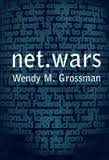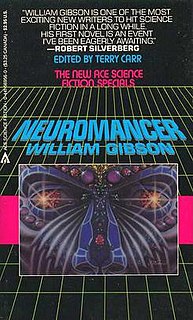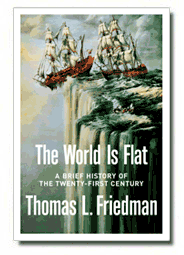 W
W"As We May Think" is a 1945 essay by Vannevar Bush which has been described as visionary and influential, anticipating many aspects of information society. It was first published in The Atlantic in July 1945 and republished in an abridged version in September 1945—before and after the atomic bombings of Hiroshima and Nagasaki. Bush expresses his concern for the direction of scientific efforts toward destruction, rather than understanding, and explicates a desire for a sort of collective memory machine with his concept of the memex that would make knowledge more accessible, believing that it would help fix these problems. Through this machine, Bush hoped to transform an information explosion into a knowledge explosion.
 W
WIntelligence amplification (IA) refers to the effective use of information technology in augmenting human intelligence. The idea was first proposed in the 1950s and 1960s by cybernetics and early computer pioneers.
 W
WComputer: A History of the Information Machine is a history of computing written by Martin Campbell-Kelly and William Aspray first published in 1996. It follows the history of "information machines" from Charles Babbage's difference engine through Herman Hollerith's tabulating machines to the invention of the modern electronic digital computer. A revised 2nd edition published in 2004 included new material on the Internet and World Wide Web, while the updated 3rd edition published in 2013 includes contributions from historians Nathan Ensmenger and Jeffrey Yost. The 3rd edition extends the story to include recent phenomena such as social networking and revises the discussion of early history to reflect new insights from the literature.
 W
W"A Declaration of the Independence of Cyberspace" is a widely distributed early paper on the applicability of government on the rapidly growing Internet. Commissioned for the pioneering Internet project 24 Hours in Cyberspace, it was written by John Perry Barlow, a founder of the Electronic Frontier Foundation, and published online on February 8, 1996, from Davos, Switzerland. It was written primarily in response to the passing into law of the Telecommunications Act of 1996 in the United States. In 2014, the Department of Records recorded and released audio and video content of Barlow reading the Declaration.
 W
WDesigning Virtual Worlds is a book about the practice of virtual world development by Richard Bartle. It has been noted as an authoritative source regarding the history of world-based online games. College courses have been taught using it.
 W
WIntelligence amplification (IA) refers to the effective use of information technology in augmenting human intelligence. The idea was first proposed in the 1950s and 1960s by cybernetics and early computer pioneers.
 W
WIntergalactic Computer Network or Galactic Network (IGCN) was a computer networking concept similar to today's Internet.
 W
WThe Internet Galaxy: Reflections on the Internet, Business, and Society is a book by Manuel Castells, Professor of Sociology and Professor of City and Regional Planning at the University of California. It was published by Oxford University Press in 2001. The title is a reference to The Gutenberg Galaxy, a 1962 book by Marshall McLuhan. It is regarded as a good introduction to Social informatics.
 W
WNet.wars is a non-fiction book by journalist Wendy M. Grossman about conflict and controversy among stakeholders on the Internet. It was published by NYU Press in 1997, and was simultaneously made available free as an online version. The book discusses conflicts which arose during the growth of the Internet from 1993 through 1997, labeled by Grossman as "boundary disputes". These disputes deal with issues including privacy, encryption, copyright, censorship, sex, and pornography. The author discusses history of organizations in their attempts to enforce their intellectual property on the Internet, against individuals who attempted to reveal confidential materials asserting it was in the public interest. Grossman frames these disputes with respect to overarching rights of freedom of speech and the First Amendment to the United States Constitution.
 W
WNeuromancer is a 1984 science fiction novel by American-Canadian writer William Gibson. It is one of the best-known works in the cyberpunk genre and the first novel to win the Nebula Award, the Philip K. Dick Award, and the Hugo Award. It was Gibson's debut novel and the beginning of the Sprawl trilogy. Set in the future, the novel follows Henry Case, a washed-up computer hacker who is hired for one last job, which brings him up against a powerful artificial intelligence.
 W
WSnow Crash is a science fiction novel by American writer Neal Stephenson, published in 1992. Like many of Stephenson's novels, it covers history, linguistics, anthropology, archaeology, religion, computer science, politics, cryptography, memetics and philosophy.
 W
WWeaving the Web: The Original Design and Ultimate Destiny of the World Wide Web by its inventor (1999) is a book written by Tim Berners-Lee describing how the World Wide Web was created and his role in it.
 W
WWho Controls the Internet? Illusions of a Borderless World is a 2006 book by Jack Goldsmith and Tim Wu that offers an assessment of the struggle to control the Internet. Starting with a discussion of the early vision of a borderless global community, the authors present some of the most prominent individuals, ideas and movements that have played key roles in developing the Internet. As law professors at Harvard and Columbia, respectively, Goldsmith and Wu assert the important role of government in maintaining Internet law and order while debunking the claims of techno-utopianism that have been espoused by theorists such as Thomas Friedman.
 W
WThe World Is Curved: Hidden Dangers to the Global Economy is a book written by David M. Smick, a financial market consultant, non-fiction author, and Chairman and CEO in the consultancy company of Johnson Smick International (JSI). This book opposes the views of Thomas Friedman's The World Is Flat: A Brief History of the Twenty-First Century. Smick considers the potential negative ramifications of a constantly fluctuating global economy and analyzes possible solutions to these challenges.
 W
WThe World Is Flat: A Brief History of the Twenty-first Century is an international best-selling book by Thomas L. Friedman that analyzes globalization, primarily in the early 21st century. The title is a metaphor for viewing the world as a level playing field in terms of commerce, wherein all competitors, except for labor, have an equal opportunity. As the first edition cover illustration indicates, the title also alludes to the perceptual shift required for countries, companies, and individuals to remain competitive in a global market in which historical and geographic divisions are becoming increasingly irrelevant.